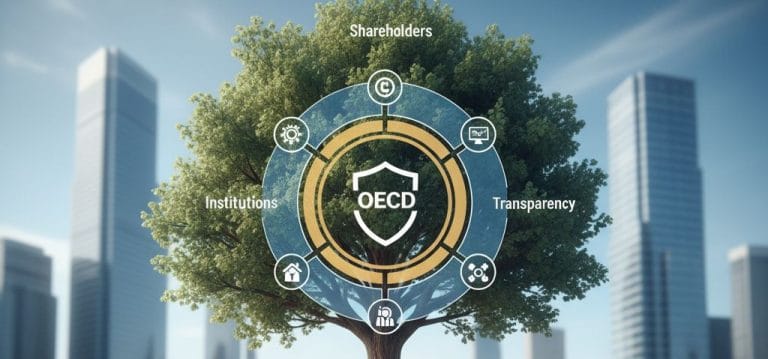Article

What is Supply Chain Management and Why It’s a Strategic Priority
It used to be simple: produce a product, ship it out, and move on to the next batch. But the global economy doesn’t work that way anymore. Now, the success of a business hinges on its ability to move materials, information, and products across a complex web of suppliers, manufacturers, logistics partners, and customers. This web has a name—Supply Chain Management (SCM)—and it’s no longer just a back-office function. It’s a strategic priority.
Supply chain management is the quiet engine behind business continuity, customer satisfaction, cost efficiency, and competitive advantage. And if you’re not managing it strategically, you’re already behind.
Let’s unpack what supply chain management really is—and why it’s moved to the top of the boardroom agenda.
New to the World of Logistics & Supply Chain?
If you’re looking to build or elevate a career in supply chain management, start by exploring our Logistics and Supply Chain training category. These courses are designed to help professionals develop real-world skills in strategy, analytics, sustainability, procurement, and global logistics—everything today’s employers are looking for.
Whether you’re transitioning into the field or aiming for leadership roles, this is where your transformation begins.
Defining Supply Chain Management
Supply Chain Management refers to the coordination of all activities involved in sourcing, procurement, production, logistics, and customer service. It ensures that products move efficiently from raw material suppliers to end consumers—with minimal waste, delays, or disruptions.
But SCM is more than just “moving stuff.” It’s about integrating people, processes, technology, and strategy to build a responsive, resilient, and cost-effective system.
Here’s what modern SCM involves:
Supplier relationship management
Inventory control and optimization
Demand forecasting and analytics
Warehousing and distribution planning
Risk management and sustainability initiatives
Why SCM Is Now a Boardroom Priority
A decade ago, the supply chain was mostly considered an operational task. But that’s changed—drastically. Global disruptions like COVID-19, geopolitical tensions, raw material shortages, and climate change have shown that supply chains can make or break a business.
Today, SCM is seen as:
A driver of profit margins (through cost reduction and efficiency)
A buffer against global disruptions
A key to customer satisfaction and loyalty
A way to meet ESG (Environmental, Social, and Governance) targets
A competitive differentiator in fast-moving industries
That’s why professionals who understand SCM holistically—from data to delivery—are in extremely high demand.
Best Practices to Build a Winning Supply Chain Strategy
End-to-End Visibility
Know your supply chain from the supplier’s supplier to the customer’s customer. Visibility helps in proactive decision-making and reduces risk.Data-Driven Decisions
With the right tools and analytics, you can forecast demand, reduce inventory costs, and optimize delivery routes. Our Supply Chain and Analytics Professional Certificate Course teaches exactly how to use data for smarter supply chain decisions.Sustainable Practices
From eco-friendly packaging to ethical sourcing, supply chains are becoming a reflection of corporate responsibility. Explore this further in our Sustainable Supply Chain Management Course.Strategic Planning Over Tactical Execution
Move beyond short-term fixes. Align supply chain goals with corporate strategy, market trends, and future demands.
To master these fundamentals, the Supply Chain Best Practices Course offers practical frameworks and global insights to help professionals create efficient, resilient, and customer-focused supply chains.
The Role of Technology in Supply Chain Management
Modern SCM doesn’t run on spreadsheets—it runs on smart systems. Cloud-based platforms, AI-driven demand planning, real-time tracking, and robotic automation are transforming how businesses manage their supply chains.
But tech alone isn’t the answer. It must be paired with strong strategy and skilled professionals who know how to use these tools effectively.
This is where Anderson’s courses provide an edge—giving you both the technical knowledge and strategic insight needed to lead SCM initiatives in a digitally driven world.
Conclusion: SCM Is the Business Advantage of the Future
As supply chains become longer, more global, and more vulnerable, managing them isn’t optional—it’s mission-critical.
Organizations that treat supply chain management as a strategic priority will enjoy:
Higher efficiency and lower operational costs
Greater agility in the face of disruptions
Improved sustainability and brand image
Stronger relationships with customers and suppliers
If you’re aiming to contribute meaningfully to your organization’s growth—or lead from the front—developing your SCM expertise is one of the smartest moves you can make.
Anderson’s industry-relevant courses will help you do just that.
FAQs:
1. What exactly is supply chain management?
SCM is the coordination and optimization of all activities involved in sourcing, production, warehousing, and delivery of goods and services.
2. Why is supply chain management important for business strategy?
It improves efficiency, reduces costs, ensures timely delivery, and allows companies to quickly adapt to disruptions or market changes.
3. What is the role of analytics in supply chain management?
Analytics helps in demand forecasting, inventory management, and performance optimization. Learn more in our Supply Chain and Analytics Professional Certificate Course.
4. How does sustainability affect the supply chain?
Sustainable supply chains reduce environmental impact and improve brand reputation. Our Sustainable Supply Chain Management Course dives deep into this topic.
5. Which course is best to understand supply chain strategies?
Start with the Supply Chain Best Practices Course to gain practical tools and strategic approaches to SCM.
6. Is SCM relevant for non-manufacturing industries?
Absolutely. Retail, healthcare, tech, and even service industries depend on robust supply chains for service delivery, product availability, and operational efficiency.
Explore: Logistics and Supply Chain Training Courses in Dubai – Logistics and Supply Chain Training Courses in London

